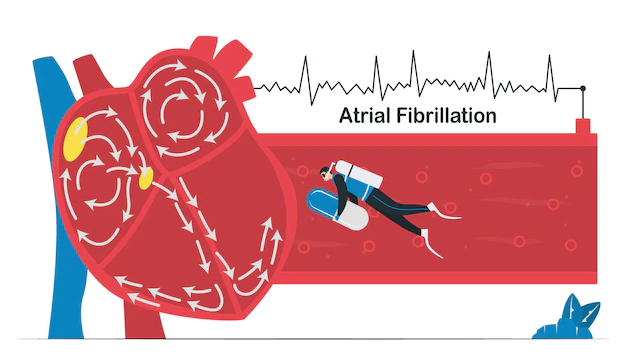Atrial Fibrillation: Making Treatment Decisions

If you are diagnosed with atrial fibrillation (AFib), your doctor will discuss various treatment options with you. The goal of treatment is to manage your symptoms, prevent complications, and improve your overall quality of life. Here are some factors to consider when making treatment decisions for AFib:
- Your symptoms: AFib can cause a range of symptoms, including palpitations, shortness of breath, and fatigue. The severity of your symptoms will influence the type of treatment that is recommended.
- Your overall health: Your doctor will consider your overall health when making treatment recommendations. This may include factors such as your age, any other medical conditions you have, and any medications you are taking.
- Your risk of complications: AFib can increase your risk of complications such as stroke. Your doctor will assess your risk of complications and recommend treatment options to reduce this risk.
- Your personal preferences: It is important to discuss your personal preferences with your doctor when making treatment decisions for AFib. For example, some people may prefer to avoid medications and opt for non-pharmacological treatments such as cardioversion or catheter ablation.
Here are some of the treatment options for AFib:
- Medications: There are several medications that can be used to control heart rate and rhythm in people with AFib. These may include beta-blockers, calcium channel blockers, and anti-arrhythmic drugs.
- Blood thinners: Blood thinners are often prescribed to people with AFib to prevent blood clots and reduce the risk of stroke.
- Cardioversion: This is a procedure in which an electric shock is delivered to the heart to restore normal rhythm.
- Catheter ablation: This is a minimally invasive procedure in which a catheter is inserted through a blood vessel and used to destroy the tissue in the heart that is causing the irregular heartbeat.
- Lifestyle changes: Making lifestyle changes such as quitting smoking, reducing alcohol consumption, and managing stress can also help to manage AFib.
It is important to work closely with your doctor to develop a treatment plan that is right for you. With the right treatment, most people with AFib can lead healthy and active lives.
